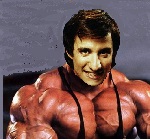|
The REAL Goobusters posted:Yeah if Iím disappointed by anything on this show is that I wish they had more scientists than literally only two (pay for more actors you goddamn cowards) and also the show to be in Russian. Subtitles are fine! Iíve been enjoying the show, but the podcast is definitely something you need to listen to just to know what they changed and what they kept. I want to actually watch this show, not read subtitles. The cast and cinematography are so insanely good and there are so so so many instances of subtle changes in body language and facial cues that people would miss reading the paragraphs at the bottom of the screen. Also, there is no way this show had a limited background budget. Iím guessing weíll see a lot more scientists in this next episode.
|
|
|
|

|
| # ? Jun 1, 2024 23:01 |
|
theflyingexecutive posted:I want to actually watch this show, not read subtitles. The cast and cinematography are so insanely good and there are so so so many instances of subtle changes in body language and facial cues that people would miss reading the paragraphs at the bottom of the screen. The dumbest poo poo Iíve ever read lmao. You can watch shows / films with subtitles and still actively enjoy them. You donít miss the body language like at all. Some of my favorite loving films and series are from South Korea lol. Anyway Iím sorry but I aggressively disagree with this.
|
|
|
|
Hell yeah guys, subs over dubs for life
|
|
|
|
The REAL Goobusters posted:The dumbest poo poo Iíve ever read lmao. You can watch shows / films with subtitles and still actively enjoy them. You donít miss the body language like at all. Some of my favorite loving films and series are from South Korea lol. Anyway Iím sorry but I aggressively disagree with this. And I would aggressively disagree with the need for historical purity. This was never billed as a documentary. It's a dramatic telling of the events. The fact that they hew so closely to historical accuracy is a strength of the show, not a flaw.
|
|
|
|
One thing is for sure, it's better than a bunch of fake Ukrainian accents.
|
|
|
|
Thwomp posted:And I would aggressively disagree with the need for historical purity. The main writer on his own podcast said that he wanted to show what actually happened at Chernobyl. He literally said this.
|
|
|
|
The REAL Goobusters posted:The main writer on his own podcast said that he wanted to show what actually happened at Chernobyl. He literally said this. yes, but you can show what actually happened while rearranging the order of events and condensing characters and time to better support the dramatic narrative
|
|
|
|
BigglesSWE posted:For those who bemoans (sometimes rightly) historical inaccuracy in popular media, I recommend this book on the subject: On the opposite end -- trying to reduce most inaccuracies in understanding the tragedy -- I've received a recommendation to read Producing Power by Sonja D. Schmid, suggested by someone who works in incident investigations of all kinds. They said: quote:The requirements of television narrative shape the story and the resulting structure of understandings. There are, of course, no objective narratives but some are more grounded and researched than others. I recommend _Producing Power_ because it is balanced and takes a more constructive view than the demonizing approaches so prevalent in Soviet-era accounts and, not coincidentally, in Western retellings. I'm just about done with it and it's pretty good (albeit takes a rather academic tone) at painting a picture about how nuclear power came to be handled and understood within the soviet union, how they juggled things like military development that is full of state secrets with civil engineering for power plants, the development of expertise they have, and the practical decisions that led to constructing RBMK reactors (over the more common water-moderated models we use in the West -- for example, the author mentions supply-chain problems and things such as the ability to ship parts on existing rail systems, which RBMK were less sensitive to and more easily locally-produced), along with the authority structure within the soviet system that led to the communication and training problems we now all know the consequences of. It won't tell you specifically about how events unfolded, but it's a far better view about how such a tragedy can come to be, looking back decades into the soviet and international nuclear industries, and eventually draws parallels with more recent events like Fukushima. It's not entertaining, but it's hella informative.
|
|
|
|
In an ideal world it would be Russian/Ukrainian actors speaking English with their native accents. The only off putting accent so far has been Dyatlov because he sounds like Matt Berry playing Lazlo in what we do in the shadows
kill me now fucked around with this message at 18:46 on May 14, 2019 |
|
|
|
The REAL Goobusters posted:The dumbest poo poo Iíve ever read lmao. You can watch shows / films with subtitles and still actively enjoy them. You donít miss the body language like at all. Some of my favorite loving films and series are from South Korea lol. Anyway Iím sorry but I aggressively disagree with this. I have absolutely no problem with subs and in fact prefer them wherever possible, but it is a perfectly valid concern when you don't understand the language. If you don't understand the language, it means that you absolutely have to read the subtitles to have any idea what's being said and if you miss anything, you have to rewind and check. This demands more attention than a show in a language the viewer understands. For people not used to watching foreign language media since forever that's going to be very jarring and hard to get used to, so I totally get the point of view. Ruflux fucked around with this message at 19:13 on May 14, 2019 |
|
|
|
These are just my personal gripes on the show. I wish it was different but what we have is fine I guess. You can enjoy whatever you want but I still think a show with subtitles wouldnít be bad, it would require more work for the viewer and if the series is good or the film is good then I donít mind putting extra work in if itís worth it. The actors thing is just a sad reality of narrative design and budget constraints. But this show has so much budget I canít fathom how they couldnít hire more actors. But whatever.
|
|
|
|
A big problem with subtitles is that they're generally a condensed version of what's being said. There's a lot of subtleties to languages that you can't translate effectively in the very limited screen space that's available for subtitles. I generally do prefer subtitles over dubs for foreign media, since dubs tend to be awful quality, but this being a fresh production it would be ridiculous to gimp it by making it in a language the majority of the audience won't understand. All that aside, goddamn that ending. 
|
|
|
|
The bit where they're treating burns with milk spoke to me. I live in rural Venezuela and when someone is going to use poison for pest control in their crops they drink milk after fumigating because everyone believes it'll prevent intoxication. Also our hospitals are the stuff of nightmares.
|
|
|
|
also lol at asking for subtitles in a forum where people already can't recognize faces, can you imagine how people would react to subtitles. Nobody would know who was who
|
|
|
|
The REAL Goobusters posted:The main writer on his own podcast said that he wanted to show what actually happened at Chernobyl. He literally said this. Why didn't he invent a time machine and go back and film the whole thing right there then? This is clearly a man who is not committed to his craft. I hope his lovely show is cancelled after this season.
|
|
|
|
Gorn Myson posted:Why didn't he invent a time machine and go back and film the whole thing right there then? This is clearly a man who is not committed to his craft. I hope his lovely show is cancelled after this season. 
|
|
|
|
Toxic Fart Syndrome posted:So, a chemical reaction which generates heat is added to a nuclear pile already in a fission meltdown, which turns the whole thing into a 5 megaton bomb. I think? Ssssomething like that. I don't think a steam explosion would ever be 2-4 megatons (that's about equivalent to the energy of -all- explosives used in world war 2, including both atomic bombs, as well as being more powerful than most modern non-thermonuclear weapons) but the explosion itself certainly could cause a criticality accident, which is what could cause a nuclear explosion. Most nuclear bombs, after all, are just shaped explosives compressing radioactive material so it has a runaway chain reaction before it blows itself apart. Just looking at the amount of fissile material, Little Boy had 140 pounds of Uranium in it, and reactor 4 had over 2000 pounds of Uranium in it. And that's ignoring the other 3 nearby reactors with a ton of fuel in them each. So, the fissile mass is there and available. An explosion kinda sorta like the one in a gun-type nuclear bomb seems possible depending on how a steam explosion shapes the corium mass (since it's not going to efficiently compress it like an implosion weapon), but... yeah, you'd probably need an actual nuclear scientist or a studied physicist to get a definitive answer. I'll just trust the scientists who warned that something comparable to a very big nuclear weapon would go off in a populated area. I'm also gonna stick to the assumption that they were talking in terms of radioactive fallout, and not just size of explosion. I would not want 4 tons of uranium sprinkled across Kiev and Minsk and every other populated town in Southern Belarus/Northern Ukraine Minera fucked around with this message at 19:13 on May 14, 2019 |
|
|
|
The REAL Goobusters posted:The dumbest poo poo Iíve ever read lmao. You can watch shows / films with subtitles and still actively enjoy them. You donít miss the body language like at all. Some of my favorite loving films and series are from South Korea lol. Anyway Iím sorry but I aggressively disagree with this. You physically canít read subtitles and watch the main action at the same time
|
|
|
|
Minrad posted:Ssssomething like that. I don't think a steam explosion would ever be 2-4 megatons (that's about equivalent to the energy of -all- explosives used in world war 2, including both atomic bombs, as well as being more powerful than most modern non-thermonuclear weapons) but the explosion itself certainly could cause a criticality accident, which is what could cause a nuclear explosion. Most nuclear bombs, after all, are just shaped explosives compressing radioactive material so it has a runaway chain reaction before it blows itself apart. Mt St. Helens was a 25 megaton steam explosion for reference.
|
|
|
|
So I'd like to say probably way too much about how I'm a little unhappy about the portrayal of Anatoly Dyatlov (Mr Everything's Fine *pukes on the table* from episode 1). I researched a lot (probably an unhealthy amount) about the intricacies of the bureaucracy, trials and blame-shifting that ensued after the Chernobyl accident and Dyatlov seems like one of the most unfairly maligned characters in it. He was indicted alongside Brukhanov and Fomin but unlike them refused to play the part of a disgraced repentant administrator who caused the accident with gross incompetence and various oversights. From the very beginning up until his death in 1995 he was adamant to the point of belligerence in defending his subordinates working at the plant at the time. Contrarily to the official state position he claimed that none of them - Toptunov and Akimov in particular, the guys at the control desk at the time of the accident - made mistakes or caused the explosion. Those two died weeks later in the hospital in Moscow, but instead of a pension and medals for courage their families received curt notices that the only reason they won't be prosecuted for criminal negiligence was because they were dead. Dyatlov fought for their recognition. He spent years in a labor camp and dedicated the rest of his life to campaigning to clear their names, writing letters and articles, digging up documentation and blueprints and basically proving that the reactor flaws were well known to its designers at the Kurchatov Institute and intentionally kept secret. In his own words, the flaws of the reactor design were so severe that if the explosion hadn't happened in Chernobyl it would have happened somewhere else. While it's probably true that Dyatlov was in denial about the amount of rads present in the plant immediately after the accident, portraying him as a bad guy is silly because he wasn't actually in charge (he was Fomin's deputy, and Brukhanov - as plant director - was a superior to both of them) and was very quickly put out of commission via acute radiation syndrome. Fomin and Brukhanov meanwhile never were in the control room or anywhere near the explosion and continued to cause damage via denial and minimizing long after Dyatlov was flown to the hospital in Moscow. Sorry about the wall of text, I'm a huge weirdo about Chernobyl and feel very strongly about how Dyatlov was made into a scapegoat by the Soviet courts and maligned for a long time afterwards (as he writes in his book, everyone knows you can't trust a zek). His book is titled Chernobyl: How it happened but only avaiable in russian and (I think) german.
|
|
|
|
Loops posted:So I'd like to say probably way too much about how I'm a little unhappy about the portrayal of Anatoly Dyatlov (Mr Everything's Fine *pukes on the table* from episode 1). To be fair we don't know who's going to be redeemed by future actions or change their behavior in light of the evidence on the ground in the next 3 episodes.
|
|
|
|
I'm pulling this quoted post from the GBS thread on the show because it's great.quote:Chernobyl was built at a time when the USSR was moving in a maybe slightly more progressive way. There were definite factions in the government that did not agree about what the reactors should be used for. The new guard, as it were, wanted a set of power reactors. Regular old PWR/BWR things. The old guard wanted to produce power too, but they also wanted weapons material, because what is the USSR without more plutonium? In the end the old guard got what they wanted and the Chernobyl reactors were designed and built with the dual purpose of providing power AND breeding weapons material. Loops posted:Anatoly Dyatlov (Mr Everything's Fine *pukes on the table* from episode 1) stuff So given everything we know (not from this post, duh. from accounts afterwards), how responsible is Dyatlov for pursuing the "safety test" with all the other mitigating circumstances? What did he know and when did he know it? Edit: referring to the Graphite as a "moderator" makes me think it inhibits fission and shouldn't cause power to spike. It's actually slowing the neutrons (good for fission), making it more likely for fission to occur (bad for Chernobyl). I know it's the technical term but it keeps throwing my brain for a loop. Thwomp fucked around with this message at 19:27 on May 14, 2019 |
|
|
|
Loops posted:While it's probably true that Dyatlov was in denial about the amount of rads present in the plant immediately after the accident, portraying him as a bad guy is silly because he wasn't actually in charge (he was Fomin's deputy, and Brukhanov - as plant director - was a superior to both of them) and was very quickly put out of commission via acute radiation syndrome. Fomin and Brukhanov meanwhile never were in the control room or anywhere near the explosion and continued to cause damage via denial and minimizing long after Dyatlov was flown to the hospital in Moscow. I think he holds some blame since he was deliberately ordering safety systems to be ignored and not following the standards of the test, but there's still 3 episodes of show left, and so far I like the way they've shown the bureaucracy and politics of it all, so hopefully his character gets revisited either way. One thing that's worth nothing is I think they've even shown everyone as being more bullheaded than they actually were; the Swedish reactor discovering the radiation leak from Chernobyl happened slightly after Pripyat's evacuation begun, I think, whereas in this show it's framed as "we're letting our school kids play in the fallout at ground zero while people a thousand miles away hide their children? what the gently caress are we doing?!" I really enjoy Boris going from threatening execution for not following his orders to being clever with the information he was given to immediately pick apart the bootlickers trying to cover everything up on the ground. They're acting foolish, but they're not unreasonable and a lot of people are willing to do brave things to try and clean things up, like the colonel measuring the debris and obviously the balls of steel on the diving team.
|
|
|
|
Bip Roberts posted:To be fair we don't know who's going to be redeemed by future actions or change their behavior in light of the evidence on the ground in the next 3 episodes. Thwomp posted:I'm pulling this quoted post from the GBS thread on the show because it's great. It helps if you understand what kind of person Dyatlov himself was - he was an absolute stickler for rules and incredibly strict about regulations, particularly w/r/t safety. Years prior to Chernobyl, he worked on a military reactor where a minor accident dosed him highly enough to kill his 9-year-old son (leukemia), and by all accounts he was a very meticulous Safety Above Everything kind of guy who personally inspected the entirety of the plant for irregularities daily. There was absolutely no amount of yee-haw involved in this whatsoever; no one disregarded any rules or safety violations.
|
|
|
|
Thwomp posted:I'm pulling this quoted post from the GBS thread on the show because it's great. That is a good post! At the end of it they go over most of the problems that were all required for the accident, but one key one they leave off but brought up earlier is the graphite moderator tips on the control rods. I think when they updated the other, still running RBMKs in the USSR after Chernobyl, removing that graphite moderator was one of the key safety changes (as well as making the rods faster and other, smaller improvements). I think the key thing Dyatlov holds blame for, is that he was the last link in the chain of people who could've stopped or delayed the test, and he went ahead with it anyways. Even going so far as to 1. override safety features 2. go ahead despite conditions of the test no longer being appropriate 3. against the objections of his crew. You can blame the control structure of the USSR, since delays on the test would've been perceived negatively and pressured everyone involved to go through with it, but it's a bit of a "I was only following orders" situation where at some point someone has to take responsibility, and at the time, Dyatlov was in charge of everyone involved in the test. I believe part of his court trial also laid the blame of several deaths at his feet, as men he ordered throughout the building after the accident received lethal doses of radiation due to his instructions and lack of appropriate safety precautions in light of the accident. He specifically accepts some blame for those deaths in his court appearance. Minera fucked around with this message at 19:42 on May 14, 2019 |
|
|
|
It's very interesting how diffuse the blame is for Chernobyl when the wests equivalent was simply a seawall that wasn't high enough.
|
|
|
|
Bip Roberts posted:To be fair we don't know who's going to be redeemed by future actions or change their behavior in light of the evidence on the ground in the next 3 episodes. Also, for what it's worth, in the 1st scene of the 1st episode Legasov says to the tape recorder: "There were far greater criminals than him [Dyatlov] at work." Of course, he also says: "The man doesn't deserve prison, he deserves death."
|
|
|
|
Despera posted:It's very interesting how diffuse the blame is for Chernobyl when the wests equivalent was simply a seawall that wasn't high enough. You can also compare it to Three Mile Island, where operator error ends up damaging a reactor, and further operator error causes it to meltdown, but there was no dangerous discharge or explosion because... the design was safer and safety protocols were, for the most part, respected and followed.  Chernobyl really was a terribly unlikely set up, and it's incredibly unfortunate that everything that had to go wrong did go wrong to make it happen. It means at the end of the day you can lay blame dozens of different ways.
|
|
|
|
Minrad posted:That is a good post! At the end of it they go over most of the problems that were all required for the accident, but one key one they leave off but brought up earlier is the graphite moderator tips on the control rods. I think when they updated the other, still running RBMKs in the USSR after Chernobyl, removing that graphite moderator was one of the key safety changes (as well as making the rods faster and other, smaller improvements). There's more than this. The book reference I've posted earlier goes into depth about this but essentially (and to simplify a bit too much), the soviet nuclear industry was divided between Sredmash (military branch that developed the first nuclear warheads and eventually came to own the design of all nuclear reactors) and Minenergo (Ministry of energy and electrification, who operated powerplants). Eventually, Sredmash got the role of designers who'd come up with the tech, and Minenergo would operate them. There was a strong tendency, due to the overall cold war context to keep the details of how the nuclear reactors worked secret and to avoid communicating too much information. This meant that over the years, training of minenergo operators by sredmash was focused a whole lot on procedures that needed to be followed, but without providing them with all the necessary knowledge that underpins their principles. They still had a strong sense of duty and focus, but this created a kind of two-tiered perception where the sredmash folks wouldn't communicate everything they knew to operators, and operators were used to being told "you don't need to know, things are fine" which eroded the ability to escalate weird behaviour upstairs. For example, the SCRAM button (automated abort) overcharge that was mentioned in a quoted post earlier when the rods would go down was noticed frequently and multiple times in the past, but the nature of interorganisational relationships and the strongly established social order meant that those events would be found in logbooks, and not brought to the designers of the system (who might have disregarded it anyway). Folks at Sredmash were entirely aware of the weaknesses of their designs (the positive void coefficient), but operators did not necessarily know about them (and Dyatlov did claim as such). If you go up an abstraction level, that split and the fact that the RBMK design (the one used at Chernobyl) was chosen relied a whole lot on the ability to obtain material. The RBMK design was much easier to produce and assemble locally. The parts required for a WWER design (the most common one in the West at the time) needed high precision manufacturing with large pieces of equipment that would not be possible to transfer everywhere, and could not be produced fast enough, even if they were bought internationally. For example, they might be too large for specific bridges, rail networks, or tunnels. The central planning committees, as part of their 5 years plans that hinged on electrification of the USSR, took a multi-pronged approach where both the WWER and RBMK designs would be used for various stations. The RBMK was a riskier design, but had a lot of advantages: it needed far less accurate manufacturing processes, could be done with more local elements, and had a modular design that could be assembled locally (transport and logistics were far less of a problem over an economy that had to be on time for 5 year plans) and even updated more easily. It also allowed refuelling without shutting anything down. It also played an element of pride as a purely soviet-designed reactor, which went to play an important role in how the soviets perceived science and engineering as core to their doctrines. Part of the approach, and where the paradox hits, is that the kind of thinking mode back then was that human operators were the redundant part of the system; you did not need as many failsafes if you had a well-trained workforce that could make good decisions. However, the training was insufficient (not enough simulators, stretched workforce in a growing industry, etc), Sredmash was not willing to give critical information, and the tight schedules with frequent manufacturing problems of the centrally-planned five-year plans meant that supervisors often had to cut corners (i.e. the roofs weren't fireproof). Blaming the operator is reductionist. Blaming the design itself might be as well. But you could blame the soviet system too. It was both a failure unique to the soviet state, but at the same time, it would be faulty to think that it's not possible to happen again elsewhere (this is called distancing through differencing). An ensemble of things driven by systemic pressures that causes divergences that end up being suboptimal is not impossible. As far as I can tell, for example (taken from Producing Power, which I referenced above), Fukushima's seawall was built lower than the recorded high water marks, and they had more reactors in a tight area, closer to the sea than what would be ideal. But those were also compromises made for practical matters, where one gambles on the probability of an catastrophic event in comparison to its likeliness. MononcQc fucked around with this message at 21:01 on May 14, 2019 |
|
|
|
That is a super informative and in depth post! Thank you.
|
|
|
|
Minrad posted:Ssssomething like that. I don't think a steam explosion would ever be 2-4 megatons (that's about equivalent to the energy of -all- explosives used in world war 2, including both atomic bombs, as well as being more powerful than most modern non-thermonuclear weapons) but the explosion itself certainly could cause a criticality accident, which is what could cause a nuclear explosion. Most nuclear bombs, after all, are just shaped explosives compressing radioactive material so it has a runaway chain reaction before it blows itself apart. I think an important distinction to make here is that nuclear weapons are often enriched to 85% U-235, the fissile isotope. RMBK reactors typically used fuel enriched to 2%. You can't just compare the mass of uranium, when it comes to nuclear physics the isotope matters quite a bit. The reactor going prompt critical and having thermal output spike resulting in a physical explosion is consistent with this, similar to a fizzled nuclear bomb test. A true nuclear explosion as we know it is impossible with uranium below about 5.4% enrichment.
|
|
|
|
Not gonna lie guys, this thread rules. So many informative posts, thanks everyone!
|
|
|
|
This is is really great book on the disaster and gives some interesting history/career info on my of the key figures on the show 
|
|
|
|
Not sure if it's been mentioned before but I really like the little details of the TV network broadcasts being the actual broadcasts that were shown when the disaster occured. The soviet one for example that was just like 1 sentence long, that was the actual real message that was shown to the public for the first time, same with the American announcer talking about it. They've done an excellent job recreating the time.
|
|
|
|
I'm really bad with Russian names, sorry. One thing I wasn't clear on from the first episode. That guy held the door open while his two friends went in to look at the core and get a radiation tan. Just holding the door was enough to make him start bleeding and he barely got a few feet down the hall before he had to stop. Yet the other two guys, who were closer and actually looking right into the core, one of them got a lot further away and the other one got all the way to the control room and was able to report what he saw, and neither of them were bleeding yet. So why did the door holding guy, who was the furthest away of the three, seem to get it the worst? Was the door radioactive and the act of pressing against it cause the bleeding?
|
|
|
|
The door was also incredibly hot. In real life that guy had to get quite a few skin grafts.
|
|
|
|
The door guy survived http://ecolo.org/documents/documents_in_english/cherno-alexander_yuvchenko.htm The guys the went in were dead pretty shortly after
|
|
|
|
I feel really bad for the dogges during the evacuation 
|
|
|
|
Despera posted:Well if they are looking for a man made soviet disaster for a sequel, nothing quite as horrifying as eating your children a la Holodomor I canít say Iíve tried that recipe
|
|
|
|

|
| # ? Jun 1, 2024 23:01 |
|
Bulky Bartokomous posted:I feel really bad for the dogges during the evacuation it's about to get worse for the dogs 
|
|
|





























